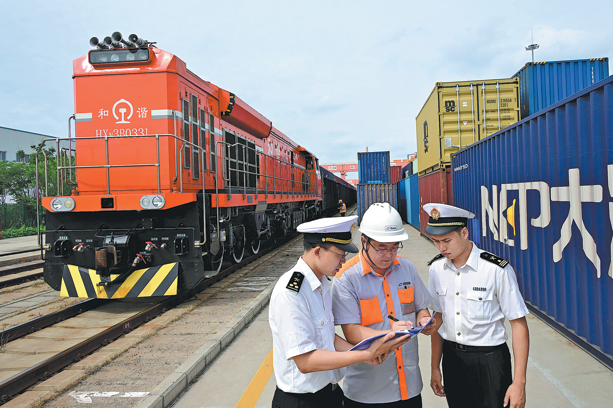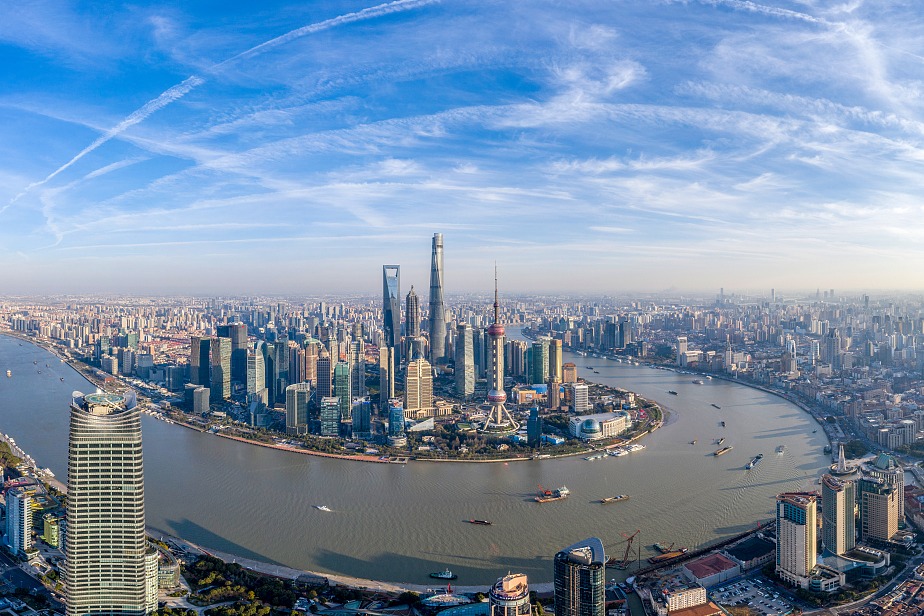USTR public hearings nothing but circuses for ringmaster China hawks

The Donald Trump administration's campaign to streamline the federal government system should not only target the departments it regards as "useless" but also those it considers "useful".
The latter should include the Office of the United States Trade Representative. An office that might be one of the busiest departments under the incumbent administration, which appears to be committed to making America great again primarily by weaponizing tariffs.
Through an interagency structure, the USTR is expected to coordinate trade policy, resolve disagreements, and frame issues for a presidential decision. But in practice, it has become a mundane transmitter between the lawmakers and the president's office, a yes-man department to both sides.
The office has many procedures, such as those related to soliciting public comments on an initiative and subsequent public hearings, that now exist only for the sake of appearances, particularly when it comes to China-related trade policies. Initially, these procedures were designed to ensure the objectivity of policymaking, but they have now become a cover for the office to ignore public comments so as to transform the personal will of individual politicians into public policy.
In its latest move, the office started inviting comments from the public on proposed Section 301 actions on Friday that are aimed at eliminating China's so-called acts, policies and practices that seek to ensure its dominance in the maritime, logistics and shipbuilding sectors. The deadline for the submission of comments is March 24, and USTR will hold a public hearing about the proposed actions on March 24.
In this Section 301 investigation, the USTR has supposedly found China's acts, policies, and practices to be unreasonable and to burden or restrict US commerce. So the USTR proposes to impose certain fees and restrictions on international maritime transport services related to Chinese ship operators and Chinese-built ships, as well as to promote the transport of US goods on US vessels.
Despite the seemingly serious attitude the office assumes in going through the procedure, the process is nothing but a waste of public resources. Experience shows no matter what public comments the office collects, and no matter how strong the opposition voiced in the public hearings, its China-targeted proposal will become policy.
For example, the USTR invited public comments on "China's Acts, Policies, and Practices Related to Targeting of the Semiconductor Industry for Dominance" in December; "China's Acts, Policies and Practices Related to Technology Transfer, Intellectual Property and Innovation" in September; and "China's Compliance with WTO Commitments" in August. And despite the strong opposition of the US semiconductor companies, high-tech sectors and trading enterprises, the USTR's proposals invariably became policies.
Looking further back at the USTR's China-related work, the list of China-targeted trade policies becomes even longer, involving almost all aspects of China's competitive trading sectors. US industries and its business community have voiced strong opposition to these policies and practices. Yet the USTR has turned a deaf ear to them.
Sometimes because of the USTR's hastiness to transform its immature proposals, which actually originate from some freakish China-hawk lawmakers, into policies, the US has to subsequently admit that certain Chinese companies, such as DJI, a Chinese drone maker, are not a threat to national security and remove them from its blacklist, as the US cannot find any alternative to their products.
It should be noted that China's maritime, logistics, and shipbuilding sectors play important roles in world logistics industry, including that of the US. The USTR has to bear in mind the huge cost and long time it will take, even if it is feasible, to get the US ports, maritime transportation industry and other logistics sectors rid of Chinese-made equipment and facilities.
The USTR has been involved in every step of the US' trade attack against China, particularly its weaponizing of tariffs. Yet since the US levied additional tariffs on Chinese imports in 2018, citing China's sizable trade surplus with the US, China's surplus has surged from $323.33 billion to $361 billion last year. Not to mention that, according to the Peterson Institute for International Economics, about 90 percent of the cost of the additional tariffs imposed by the US during this period was borne by US consumers.
The USTR's public hearings and debates on policymaking have become a politicized circus. It is high time the USTR reflected on its discarding of its independence, which results in its failure to objectively assess the public comments on major trade policies related to China.
Today's Top News
- Shameful betrayal of commitments the real threat: China Daily editorial
- Japan PM's remarks delay China-Japan-ROK meeting
- CPC holds symposium to commemorate 110th birth anniversary of Hu Yaobang
- Economy seen on steady track
- Trade-in program likely to continue next year
- Li: SCO can play bigger role in governance






























